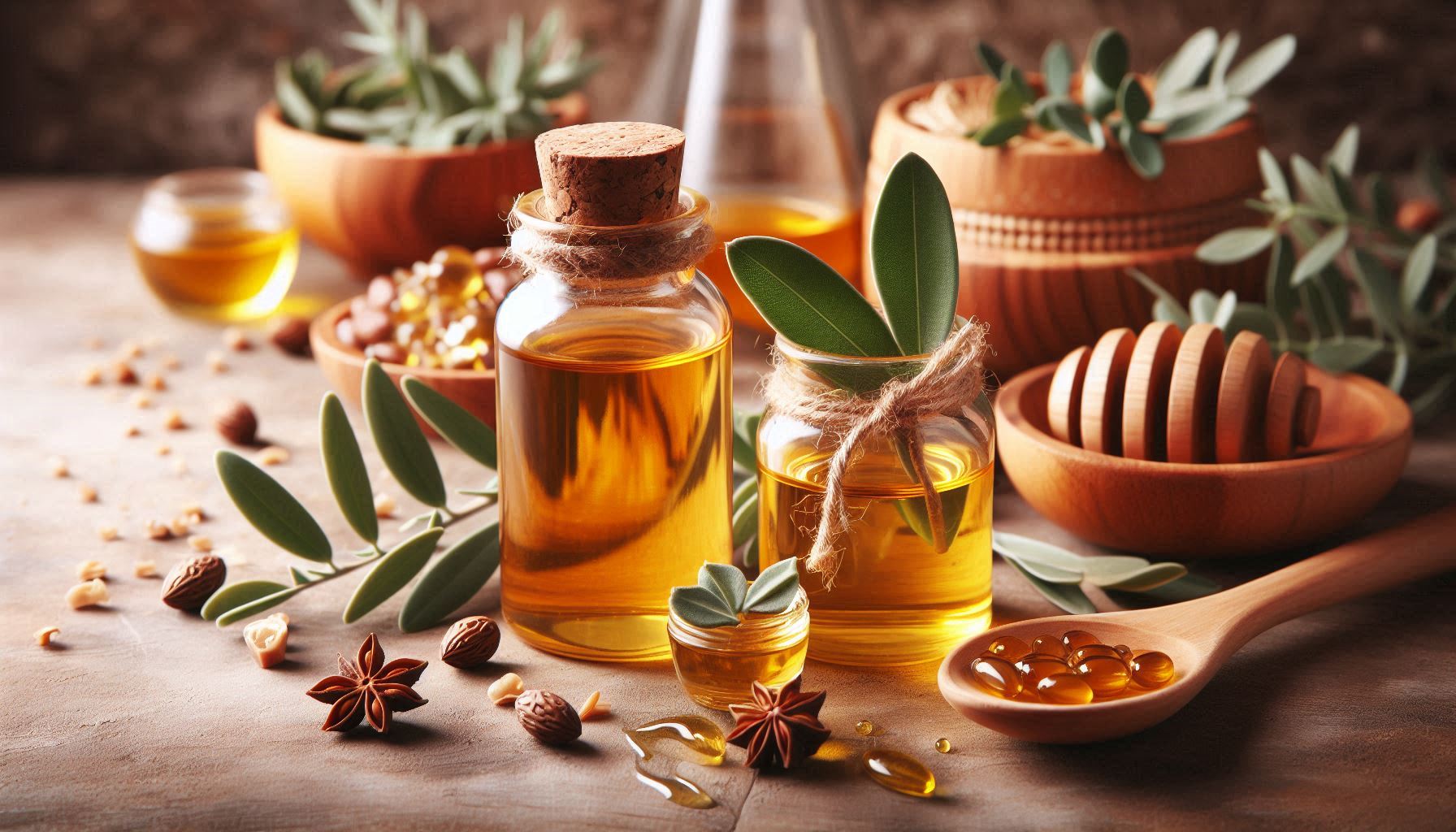
Why do we use Jojoba Seed oil?
If there’s one ingredient that truly works in harmony with your skin, it’s Jojoba Oil. But here’s a secret: it’s not actually an oil. It’s a liquid plant wax, and this unique structure is the key to its incredible skincare benefits. As one of the most versatile ingredients in our ingredient glossary, it’s compatible with nearly every skin type.
What is Simmondsia Chinensis (Jojoba) Seed Oil?
Simmondsia Chinensis Seed Oil is a liquid wax ester extracted from the seeds of the jojoba shrub, which is native to the deserts of North America. Structurally and chemically, it is remarkably similar to human sebum, the natural oil your skin produces to keep itself lubricated and protected.
This “biomimetic” (life-mimicking) nature allows it to be absorbed readily and work in perfect synergy with your skin’s natural processes. It’s composed primarily of long-chain fatty acids and fatty alcohols, making it incredibly stable.
Source:
- National Institutes of Health (PubMed Central): Characterization, Versatile Therapeutic Applications of Jojoba Oil – This comprehensive review in the International Journal of Molecular Sciences details Jojoba oil’s unique structure and its similarity to human sebum.
The Good: 4 Key Benefits of Jojoba Oil in Creams
Jojoba Oil is a multi-functional ingredient prized for its moisturizing, balancing, and soothing properties.
1. It’s a Perfect Skin Balancer
Because Jojoba Oil so closely mimics your skin’s natural sebum, it helps to balance oil production.
- For Oily Skin: It can trick the skin into thinking it has produced enough oil, helping to reduce overproduction and shine.
- For Dry Skin: It provides a perfect layer of emollient moisture, supplementing the skin’s natural sebum.
This makes it one of the few moisturizers that is universally beneficial for all skin types, from very dry to very oily.
2. It’s a Superb, Lightweight Moisturizer
As an emollient, Jojoba Oil works to soften the skin and form a delicate, non-greasy protective barrier. This helps to lock in hydration and prevent water loss, keeping the skin soft, supple, and moisturized without feeling heavy. Its molecular structure allows it to be absorbed easily.
3. It Soothes and Calms the Skin
Jojoba Oil has well-documented anti-inflammatory properties. It has traditionally been used to soothe compromised or irritated skin and is beneficial for those with inflammatory conditions such as eczema, psoriasis, and dermatitis.
4. It’s Exceptionally Stable
Unlike many true vegetable oils that can go rancid quickly, Jojoba’s structure as a wax ester makes it highly resistant to oxidation from heat and light. This means it has a very long shelf life and helps keep the cosmetic formula it’s in stable and effective for longer.
The Bad: Are There Any Considerations?
Jojoba Oil is one of the safest and least problematic ingredients available, so the “bad” is more about what it isn’t.
- Not a Vitamin Powerhouse: While it contains some Vitamin E, Jojoba Oil is not known for a high concentration of vitamins like A or C. Its primary benefits come from its unique structure, not its nutrient profile. Ingredients like Rosehip Oil are a better choice if you’re seeking high levels of natural vitamins.
- Quality and Purity Matter: High-quality, cold-pressed Jojoba Oil is the most effective.
The Verdict
Simmondsia Chinensis (Jojoba) Seed Oil is a top-tier skincare ingredient for a reason. Its unique ability to mimic the skin’s natural sebum makes it an unparalleled moisturizer and balancer for almost every skin type. When you see it in our products, you can trust that it is there to provide gentle, effective, and non-greasy hydration that works in perfect harmony with your skin.
Frequently Asked Questions about Jojoba Oil
Yes, it is one of the best oils for oily and acne-prone skin. Because its structure is so similar to the skin’s own sebum, it can help balance oil production. It is also non-comedogenic, meaning it will not clog pores.
Yes. While we call it an oil because it is liquid at room temperature, chemically it is a liquid wax ester. This is what makes it so stable and so similar to our skin’s natural sebum, which is also partially composed of wax esters.
Its main difference is its structure as a wax ester that mimics human sebum. This makes it a great balancer for all skin types. Other oils have different strengths; for example, Rosehip Oil is prized for its high Vitamin A content, and Safflower Oil is valued for its extremely high linoleic acid content.
Find Jojoba Oil in Our Products
(will be updated soon)
